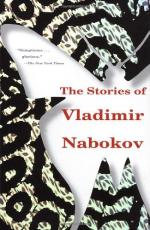|
This section contains 7,833 words (approx. 27 pages at 300 words per page) |

|
SOURCE: “Nabokov Before Proust: The Paradox of Anticipatory Memory,” in Slavic and East European Journal, Vol. 33, No. 1, Spring, 1989, pp. 78-94.
In the following essay, Foster defines the importance of “anticipatory memory” in Nabokov's early Russian novels, the ones written before he became familiar with the Proustian practice of involuntary memory.
In contrast to his dismissal of certain modern classics, most notably Dostoevskij, Freud, and T. S. Eliot, Nabokov clearly admired Marcel Proust. He named him alongside Joyce, Kafka, and Andrej Belyj as a master of twentieth-century fiction (Strong Opinions, 57), and at Cornell he would regularly teach Swann's Way in courses on the European novel. Calling Proust's Recherche “a treasure hunt where the treasure is time and the hiding place the past,” Nabokov identified the novel's great theme as “the unsuspected riches of our subliminal minds which we can retrieve only by an act of intuition, of memory, of...
|
This section contains 7,833 words (approx. 27 pages at 300 words per page) |

|


